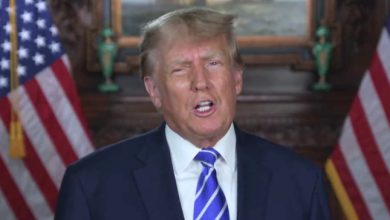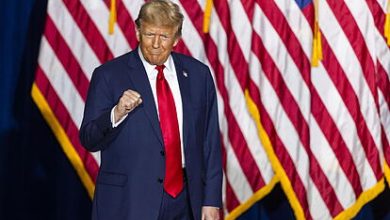WITH ANOTHER TRUMP WITCH HUNT AROUND THE CORNER, ALAN DERSHOWITZ WEIGHS IN ON TRUMP’S ‘CLASSIFIED’ DOCUMENTS

Former Harvard law professor Alan Dershowitz recently penned an op-ed on Substack that explored the legal questions of whether Trump declassified contested document found in his home by the FBI during their raid on his home and whether a criminal indictment was warranted. In the opinion of the learned legal scholar, after he assessed the relevant legal facts at play in the case, he concluded that a “[c]riminal indictment of former president has no legitimate basis.”
Dershowitz noted at the beginning of his article that Trump’s likely defense to a potential federal government indictment over his possession of materials with classified markings was that he declassified them. Mr. Dershowitz observed that in terms of the law “[t]here could be little dispute that a president, while in office, has the power to declassify any previously classified documents or material. As the head of the executive branch, he has the last word on what remains classified or declassified. It is possible, though, not beyond dispute, that Congress could constrain that power if it enacted clear legislation.”
Here he further noted that the Constitution could be interpreted as prohibiting such congressional constraint of the executive upon the classification powers of the president given the separation of powers doctrine.
What is undisputed is that to date there has been no such law that has been passed by Congress. As such “absent such legislation [which if passed may carry constitutional issues], it seems clear that the authority to classify and declassify is an executive function, and the president is the executive. So if Mr. Trump did declassify documents that were then moved to Mar-a-Lago, mere possession of such documents would not be a crime.”
Dershowitz then turns to the evidence of the case on whether Trump truly did declassify those documents. He stresses that it is difficult to prove a negative. He writes that “[t]he government could also claim that absent any evidence either way, it must be presumed that a document once classified remains classified. But that ignores that Mr. Trump’s statement to the contrary if given under oath, is evidence. But if Mr. Trump decides not to testify, there may be no admissible evidence either way.” Dershowitz also pointed out that there is no law compelling Mr. Trump to announce or record his declassification.
Dershowitz observed that under the law the burden of proof must fall on the government that show that the documents remained classified beyond a reasonable doubt. He wrote that this is a heavy charge for the government, although he stresses that this “doesn’t mean that a prosecutor could not get a grand jury to indict this particular ham sandwich. It does mean that it’s unlikely that a conviction against Mr. Trump would be sustainable.”
Based on all of those factors, Mr. Dershowitz concluded that there is reason to believe there is no legitimate reason for a criminal indictment of Mr. Trump.



